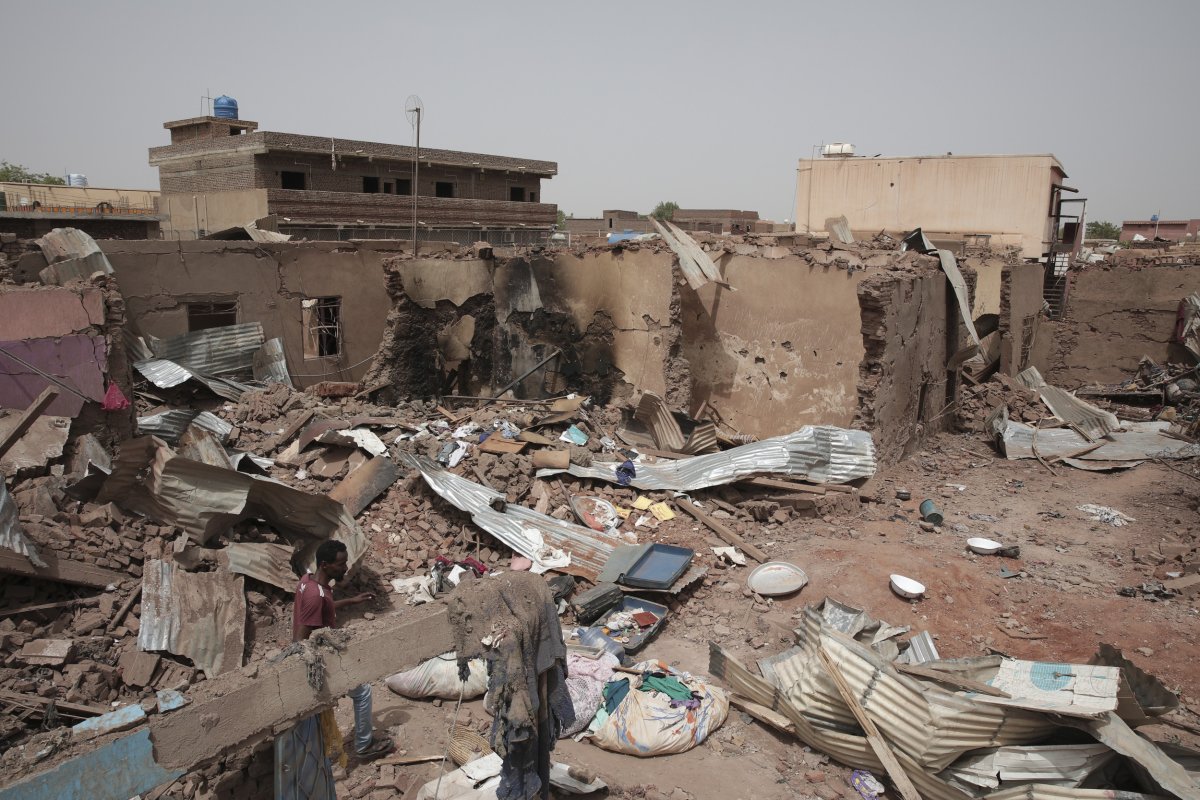What's New
War in Sudan is causing famine to spread across the country and creating the biggest displacement crisis in the world, a hunger monitoring group said on Tuesday.
Why It Matters
A civil war launched last year between the Sudanese Armed Forces (SAF) and Rapid Support Forces (RSF) has had devastating humanitarian impacts. According to the United Nations, nearly 14 million people have been displaced and more than 24,000 people have been killed in the conflict.
In August, the main global body analyzing food crises, the Integrated Food Security Phase Classification's Famine Review Committee (FRC), warned that mass famine in Sudan could be on track to become the deadliest famine in over a decade.
What To Know
The Integrated Food Security Phase Classification (IPC) on Tuesday said it detected famine in five areas of Sudan, including in the Zamzam displacement camp in North Darfur province.

Along with the Zamzam camp, the IPC said famine was detected in two other displacement camps in North Darfur, while "reasonable evidence" suggests five other areas in the province could be hit with famine in the next six months.
The report also identified seventeen areas in the Nuba Mountains and the northern and southern areas of Darfur that are at risk of famine, as well as some areas in the capital of Khartoum and the Gezira province may be experiencing famine-like conditions.
According to the IPC's report, war has devastated Sudan's economy in addition to causing mass displacement in the country.
Sudan's Civil War
The civil war started in April 2023 after simmering tensions between the SAF and the RSF broke out into fighting in Khartoum before broadening to other areas of Sudan.
The Associated Press (AP) previously reported that international rights groups have also said mass rape and ethnically motivated killings that could be classified as war crimes and crimes against humanity have occurred during the conflict.
Sudan Suspends Participation In The IPC System
On the eve of the release of IPC's report, Sudan's government dropped its participation in the global monitoring system, according to the AP, citing a senior U.N. official with knowledge of the decision.
According to the U.N. official, who spoke on the condition of anonymity, a December 23 letter from the government's agriculture minister accused the IPC of "issuing unreliable reports that undermine Sudan's sovereignty and dignity."
What People Are Saying
Alex de Waal, executive director of the World Peace Foundation at Tufts University's Fletcher School, told Reuters that Sudan's decision to stop participating with the IPC is "tragic."
"It's part of a long history of the government of Sudan denying famine going back more than 40 years," de Waal said. "Whenever there's a famine in Sudan, they consider it an affront to their sovereignty, and they're more concerned about their pride and their control than they are over the lives of their citizens."
Dervla Cleary, a senior emergency and rehabilitation officer at the U.N.'s Food and Agriculture Organization, told The Associated Press: "The situation in Sudan is just awful. It is unacceptable in a world like today."
What's Next
The International Criminal Court (ICC) is currently probing allegations of war crimes and crimes against humanity related to the conflict.
It's unclear how Sudan's government will respond to the IPC report.
This article includes reporting from The Associated Press.




















 English (US) ·
English (US) ·